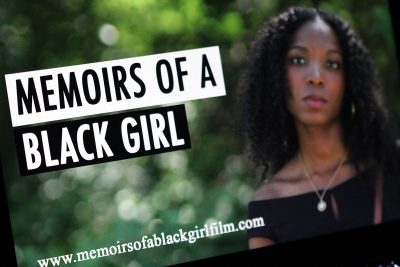When writer and director Thato Rantao Mwosa sat down to compose her 150-page script for the film “Memoirs of a Black Girl,” she looked to her students at Madison Park Technical Vocational High School in Roxbury to create a story representative of them.

A term she heard being thrown around the classroom was “snitch” — a concept which became the catalyst for her movie.
Mwosa’s film and others were featured in The Boston Globe’s “Black History Month Film Festival” to honor films and filmmakers exploring systemic racism and what it means to be Black in the United States.
“Memoirs of a Black Girl” was presented Monday in partnership with the Roxbury International Film Festival, and featured a virtual panel after the premiere with the filmmaker, lead actress, cinematographer and consulting producer.
The film focuses on the lead character Aisha Johnson, a bright student who attempts to win a prestigious scholarship, but whose ambitions become complicated after she “snitches” on fellow students and faces a series of repercussions.
The efforts in getting the film seen in four different festivals was a personal and unifying journey for Mwosa as a storyteller, she said.
“The mission of the film from the get-go, I knew I wanted my protagonist to be a Black girl,” Mwosa said in an interview. “I knew that there were not enough Black girl coming-of-age stories.”
Mwosa said she is a film teacher and was “frustrated” with the lack of representation for Black young women in film.
“I just wanted for this film to really celebrate Black girlhood and also project a different kind of girl,” Mwosa said in an interview. “We have a stereotypical kid that we’ve seen in many movies that is a girl from an urban school, so I just wanted to show the real girl, the real girls that I know, and celebrate them and honor them and say ‘I see you.’”
Consulting producer Jessica Estelle Huggins said the cast, which was made up mostly of young Black and brown actors, made the film magical.
“The power of art in general is when people believe in what you’re trying to do,” Huggins said at the panel. “It’s especially important because it was majority Black and brown voices that were like, ‘We’ve never seen something like this before in our community, we’ve never seen someone from our place tell our stories.’”
The film showcased art and murals in Roxbury, which Mwosa said at the event was an intentional decision to capture the “multicultural place.” The Nelson Mandela mural that was demolished last year was also featured in the film.
Mwosa added it is important to her to write from authentic, lived experience. Her work as a teacher informed this screenplay significantly, she said.
“As a writer, you write from experience, you write from a lived experience,” Mwosa said. “I wanted to write this film to honor my students and what you do as a writer you listen, you pay attention to stories.”
Mwosa’s inspiration from her students also comes through in the script, where she made an effort to represent their struggles, she said. For example, she said one scene depicts a student being cleansed by his religious family because he is gay — an experience based on one of Mwosa’s students’ own lives.
Other issues presented in the films — such as vaping and drug use — are present in not only Boston, but the whole country.
John ADEkoje, cinematographer of the film, spoke to the risk of challenging familiar narratives during the panel discussion. ADEkoje said he aimed to always tell his students that their stories are important.
“That’s a part of Black history … part of understanding your people,” ADEkoje said. “How do you light them, how do you frame them, how do you help tell the stories. All those things are important.”
Khai Tyler, the lead actress who plays Aisha in the film, said in an interview it is important to encourage more stories like this to be made and produced.
“We don’t see it very often and if we do see Black stories, a lot of it I’ve noticed is based around struggle and really intense hardships,” Tyler said. “Although that is part of the Black experience, I think it’s important also to show everyday stories.”
A lot of the reality of everyday life that the film aimed to present comes from what Mwosa and the cast would see day to day in the Roxbury community specifically, Mwosa said.
“There’s all kinds of Blackness in Boston, it’s multicultural,” she said. “I think [the film] was for me to reflect America the way it is.”
Mwosa said many of her students were involved in the film and it is something she is very passionate about.
“This was a homegrown film,” Mwosa said, signifying how everything was in Roxbury. “I call it, it’s like the little train that could … We didn’t have a lot of money, but we had the passion, and I hope it reflects in the film.”

























































































































Elizabeth Thomas • Feb 10, 2021 at 10:33 am
I waited earnestly for this film and it lived up to the expectation.True to form What this film has done is expose the reality of so many students, many unlike the heroine here do not live to experience favorable outcomes.High school can be tough.I applaud Thato for her vision , wisdom and talents.I give this film 2 enthusiastic thumbs ‘ way .A must see for everyone.Bravo!